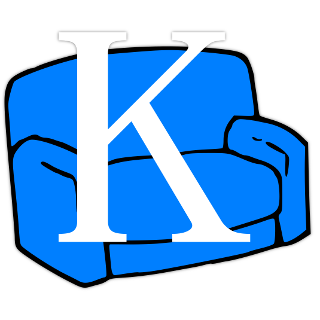RECENT POSTS
- Kivik v4.0 is out!
- Kivik v4.0.0-rc1 released
- New kivik CLI tool
- Kivik v3.2.0 released with cluster membership support
- Kivik v3.1.0 released with partitioned queries
- Upcoming Kivik changes for CouchDB 3.x
- Kivik v3.0.0 released
- Kivik v2.0.0 released
- (Probably) final 2.0.0 pre-release, and v3 announcement
- The Future of Kivik
- All posts ...
Announcing Kivik
The general-purpose CouchDB client API for Go and GopherJS
Apr 22, 2017 • Jonathan Hall
Editorial Note: This post originally appeared on Jonathan Hall’s blog.
For nearly 3 months now, I’ve spent most of my free time working on a new open-source project: a Go client library for CouchDB and PouchDB. As I’m now putting together the last major feature for a 1.0 release, I feel it’s time to make my work public.
 So today I am announcing Kivik!
So today I am announcing Kivik!
Kivik is a general-purpose client API for the Apache CouchDB database, and similar databases (such as PouchDB) for Go and GopherJS.
What Kivik currently provides that other libraries don’t
- Kivik provides a backend-agnostic CouchDB client API. Similar to the standard library’s sql package, different backend drivers can be substituted at build time, with no change to the client code. At the moment two backend drivers are supported, one for CouchDB, and one for PouchDB.
- Kivik supports both Go and GopherJS. For GopherJS, Kivik provides PouchDB bindings, so that GopherJS programs can use the same client API as standard Go programs. Previously, it was necessary to use different client libraries for Go (i.e. github.com/fjl/go-couchdb) and PouchDB (github.com/flimzy/go-pouchdb).
- Kivik provides an unambiguous open-source license. The leading Go CouchDB library, github.com/fjl/go-couchdb, has no published license, which probably means it’s not open-source (but IANAL). Kivik is released under the Apache License, for complete open-source compatibility with CouchDB and PouchDB.
- Kivik provides support for both CouchDB 1.6.x and CouchDB 2.0.x. To my knowledge, no other Go client library provides support for MongoDB-style queries, which were added in CouchDB 2.0, or support for any of the other API changes introduced in 2.0.0. Kivik aims to remedy that, by providing a client API that works with both 1.6.x servers and 2.0.x servers (as well as future releases).
- Kivik provides row iterators. All other Go CouchDB libraries I have seen require reading an entire result set before parsing or returning any rows. For large result sets, this is a huge waste of memory, not to mention slow. Kivik provides iterators over common query results, just as the sql package does, so you can begin using your results, even while the HTTP response is still in transit.
Future development plans include
- Kivik will provide a memory-based driver. The purpose of this driver is to facilitate automated testing, without requiring running a CouchDB server. Just connect to the memory driver, and unit-test away!
- The
kivikcommand-line tool. It already exists, but does little of value yet. In the future, it will provide a simple way to fire up a memory-backed server, which will allow for lightweight unit/integration tests, without the need for a full CouchDB server. - Add full replication support to Kivik. At present, Kivik can initiate a
replication via either the CouchDB
_replicatordatabase, or PouchDB’sreplicate()function, but has no understanding of the replication protocol itself. In the future, Kivik will also be able to do replications itself. This will allow replicating between backends (such as from thememorybackend to theCouchDBbackend), which could facilitate seeding of databases, and other scenarios.
Current development status
As of this writing, the client library is considered 1.0-feature-ready except for the addition of replication, which is nearing completion (2-3 days more, max).
I welcome testers to use the client library and provide bug reports and/or pull requests. I’ll be doing my own testing in a couple of my own apps for the next few weeks.
I hope to make an official 1.0.0 release on or around June 1.
After 1.0.0 is out the door, my next task will be completing the memory
backend driver, to facilitate automated testing applications.
Why the name Kivik?
Kivik is a locality situated in Simrishamn Municipality, Skåne County, Sweden with 960 inhabitants as of 2010.
It also happens to be, by sheer coincidence, I’m sure, the name of a line of sofas from IKEA. Also by coincidence, it’s the shortest name of an IKEA sofa line that can be spelled using only Latin characters.
It also happens to be a palindrome, which I’m sure someone will appreciate immensely.
Volunteers welcome
If you find Kivik useful or intriguing, you can help in any of the following ways:
- Testing At this stage, the most valuable thing you can offer is simply using and testing Kivik, and reporting bugs.
- Pull requests Pull requests to accompany bug reports (or feature requests) are of course welcome, too! I encourage you to open an issue before submitting PRs for new features, to discuss the implications.
- Logo design The “logo” I’m using is just a public domain image. If you’re graphically inclined, I’d love a custom logo. Please contact me by creating an issue on GitHub if you are interested.